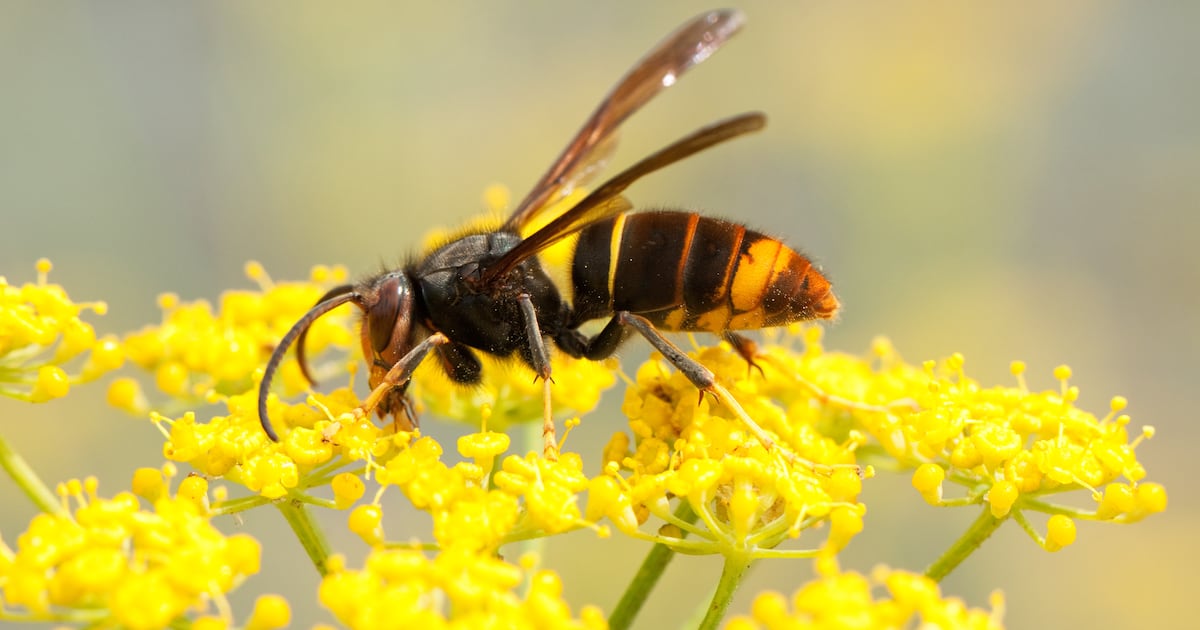An Asian hornet nest has been located in Cork City by the National Parks and Wildlife Service (NPWS).
The insect, native to southeast Asia, has now spread through continental Europe. It kills honeybees and wild bees, with control efforts ongoing in the UK to prevent the establishment of colonies there.
The sighting of an Asian hornet in Cork earlier this month triggered the creation of a taskforce to co-ordinate the State response.
Christopher O’Sullivan, Minister of State for Nature, Heritage and Biodiversity, confirmed on Thursday that the nest is in the southside of Cork City.
Speaking on RTÉ’s Morning Ireland, Mr O’Sullivan said the nest was located after an “intensive effort” by the National Parks and Wildlife Service.
The Fianna Fáil TD said he “can’t give away the exact location for obvious reasons” but that it was near where the original hornet was sighted.
“I know people may be alarmed and may be alerted by the fact that we now have a confirmed sighting of an Asian hornet nest because of the devastating impacts that an Asian hornet outbreak would have on biodiversity and nature in general. But it is a success story.”
Mr O’Sullivan said queen hornets, if they get out into wider circulation, may build their own nests, causing the population to multiply. However, they tend to leave their nests later in the autumn.
“We can’t say with absolute certainty – and there’s still a lot of work and investigative work to be done here – but we can say that usually these queens leave their nest much later in the autumn.”
The junior minister praised the “quick” work of NPWS rangers who located the nest. He said the nest will be “destroyed” and DNA tests will be carried out on the hornets to find out where they originated from.
Mr O’Sullivan said the Asian Hornet Management Group “will collaborate very closely with our colleagues in the UK, who have built up an expertise on this, so we can prevent further spread”.
The location of sightings of hornets are not being disclosed for operational purposes, the Department of Housing, Local Government and Heritage, which oversees the NPWS, said.
The Asian hornet is not aggressive but it will sting if provoked.
Members of the public have been asked to report the location of the insect if sighted, with a photograph if possible, but not to attempt to capture it.
The Asian hornet can easily be confused with non-invasive species such as the giant woodwasp, the dark giant horsefly and the common wasp.
